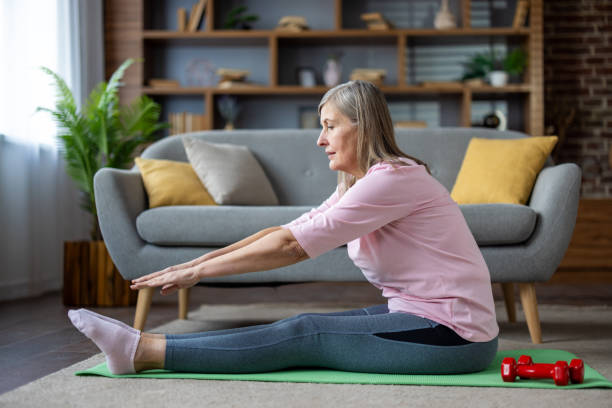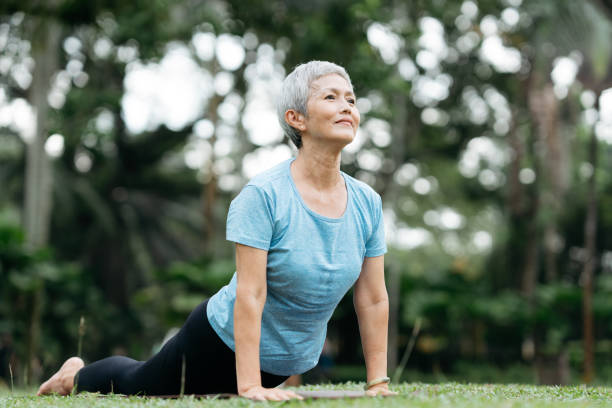As the body ages, the immune system naturally weakens, making older adults more susceptible to infections and chronic illnesses and slower recovery from injuries. While genetics play a role in immunity, lifestyle choices significantly impact how well the body defends itself against diseases. One of the most powerful tools for maintaining a strong immune system in aging adults is exercise. Regular physical activity not only boosts immune function but also enhances overall well-being, longevity, and quality of life.
Contents
Understanding the Aging Immune System
The immune system is a complex network of cells and proteins that protect the body from harmful invaders such as bacteria, viruses, and toxins. With age, this defense mechanism undergoes a process known as immunosenescence, where immune response declines, making infections more frequent and increasing the risk of autoimmune disorders. Additionally, chronic inflammation becomes more common in older adults, contributing to diseases like arthritis, cardiovascular conditions, and cognitive decline.
While these changes are inevitable, scientific research shows that adopting healthy habits—especially regular physical activity—can counteract some of these effects and keep the immune system functioning optimally.
How Exercise Strengthens the Immune System
Exercise influences immune function in multiple ways, improving both innate and adaptive immunity. Moderate physical activity helps circulate immune cells more efficiently, allowing them to detect and eliminate pathogens faster. It also reduces chronic inflammation and supports the production of antibodies that fight infections.
- Enhanced Immune Surveillance
Exercise increases the circulation of white blood cells and other immune components, enabling them to identify and destroy harmful pathogens more effectively. This heightened surveillance helps prevent infections and promotes quicker recovery from illnesses. - Reduction in Chronic Inflammation
Persistent low-grade inflammation is a major contributor to age-related diseases. Exercise helps regulate the body’s inflammatory response, reducing excessive inflammation while still allowing the immune system to respond effectively when needed. - Improved Gut Health
A significant portion of the immune system is located in the gut, where beneficial bacteria play a crucial role in maintaining immune balance. Regular physical activity promotes a healthy gut microbiome, supporting digestive health and enhancing immune defense. - Better Response to Vaccinations
Older adults often have a weaker response to vaccinations due to a slower immune system. Studies suggest that individuals who engage in regular exercise produce more robust antibody responses to vaccines, making them more effective in preventing infections like influenza and pneumonia. - Stress Reduction and Hormonal Balance
Chronic stress suppresses immune function by elevating levels of cortisol, a hormone that weakens immune defenses. Exercise acts as a natural stress reliever, lowering cortisol levels and stimulating the release of endorphins, which improve mood and mental resilience.
The Best Types of Exercise for Immune Health

Not all forms of exercise are equally beneficial for immunity, and older adults should focus on safe, enjoyable, and sustainable activities. Combining aerobic, strength, flexibility, and balance exercises provides the most comprehensive health benefits.
- Aerobic Exercise: Activities like walking, swimming, cycling, and dancing improve cardiovascular health, boost circulation, and increase oxygen supply to immune cells. The goal is to engage in at least 150 minutes of moderate-intensity aerobic exercise per week.
- Strength Training: Resistance exercises such as lifting weights, bodyweight exercises, or resistance band workouts help maintain muscle mass, improve bone density, and regulate metabolic functions that support immunity. Strength training should be performed at least twice a week.
- Flexibility and Balance Exercises: Yoga, Pilates, and stretching routines enhance mobility, reduce stiffness, and prevent falls, which can lead to complications in older adults. Improved flexibility also supports proper circulation and muscle function.
- Low-Impact Activities: For individuals with joint issues or chronic conditions, low-impact options such as water aerobics, tai chi, or chair exercises provide gentle yet effective ways to stay active without excessive strain.
Guidelines for Safe and Effective Exercise
To maximize the immune-boosting benefits of exercise, it is important to follow certain guidelines tailored for aging adults.
- Start Slow and Progress Gradually: If new to exercise, begin with low-intensity activities and gradually increase duration and intensity. Overexertion can lead to stress on the body, potentially suppressing immune function.
- Listen to Your Body: Fatigue, joint pain, or shortness of breath should not be ignored. Rest when necessary and modify exercises to suit individual fitness levels.
- Stay Hydrated and Maintain a Balanced Diet: Proper hydration and nutrition support the body’s ability to recover from exercise and strengthen immune defenses.
- Incorporate Rest and Recovery: Rest days are crucial for allowing muscles and the immune system to repair and regenerate. Aim for adequate sleep to support immune function.
- Stay Consistent: The benefits of exercise accumulate over time, so maintaining a routine is key to sustaining a strong immune system.
Exercise as a Key to Healthy Aging
Aging is inevitable, but lifestyle choices can influence how the body ages. Regular exercise is a natural and effective way to counteract the decline in immune function, reduce the risk of chronic diseases, and enhance overall quality of life. For older adults, staying active not only strengthens the body but also fosters social connections, improves mental well-being, and promotes independence.
By prioritizing movement and incorporating safe, enjoyable exercises into daily life, aging adults can maintain a resilient immune system and continue to lead vibrant, fulfilling lives.
